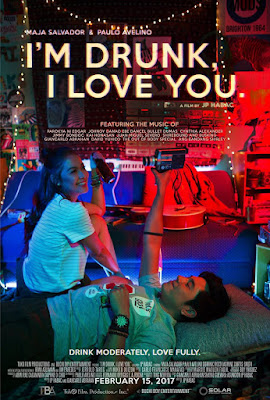HARUO (Adolfo Borinaga Alix Jr., 2011)
During the Q and A for the special screening at UP Diliman hosted by the Young Critics' Circle (YCC) Filmdesk, one member of the audience praised HARUO for portraying Manila in a beautiful light. Beautiful, as in the emphasis is not on the squalor. The setting is in Quiapo, Manila, and I don't mean the place became Paris all of a sudden, but rather the place exists only as a backdrop- to set the context. HARUO does not aim to comment on urban nightmare.
Maybe filmmaker Adolfo Alix Jr's homage to Japanese Yakuza cinema, what's undeniable in HARUO is the strong charisma of its main actor Jacky Woo, playing the quintessential cinematic good Samaritan. He is an expat renting a room in Quiapo, selling noodles off a pushcart. He is kindhearted, humble, and somewhat utterly depressed. Flashes of his history intercuts every now and then, in fragmented details.
The closest he has to a friend or a confidante is a prostitute (played by Rosanna Roces) working in a night club, where Haruo goes to drink his sorrows away. Later on, we learn that even she has demons of her own. We see her as a real person, not just another caricature, or a placeholder. Nevertheless, Haruo's relationship with her is mundane. He does not open up.
A mysterious man and woman (Arnold Reyes and Roxanne Barcelo) soon rents the room adjacent to Haruo's. Haruo is drawn to the woman, despite his best efforts at resistance. When the time came that the woman needed his help, he immediately came to her aid, in the same manner that he once helped another girl whom he doesn't know.
Haruo's murky past unfolds, and people who are hunting him from Tokyo soon close in on him. The same events of his life take place. A bloody showdown ensues. One you wouldn't expect from Alix, who is so keen on hyperrealism, and yet the fight sequences are neatly-mounted.
A melancholic tone forebodes the film, and despite the gloom in Haruo's eyes, or the sinking lives of the people around him, there is still hope. Haruo still finds the beauty in the minutest details of everyday life, giving free soup to beggars and such. There exists an orchid in Haruo's room, so prominent you would not miss it. As a symbol of beauty amidst all the darkness that surrounds, the orchid paints a thousand visual words.
What I would have wanted though, is more exploration on the character of the first woman Haruo saves in Tokyo, and their ensuing relationship. For me, the girl felt more like a ghost haunting Haruo, when she could have been given more character.
Also, the flashback scenes, although not completely overlong and overwrought, could have been told in parts (thus minimizing shot repetition) and from more different camera angles.
Roxanne Barcelo's character, at one point, narrates to Haruo her whole ordeal, and we have to take it in, in one sitting. Cutaways of what she was saying would have been helpful, or a paraphrase just so the dialogue would not sound as if it would on a soap opera.
Despite its flaws, HARUO as a whole feels like a genre film, clearly inspired and passionate. The script's love for its protagonist is overt. Some of you will notice some resemblance to David Cronenberg's A HISTORY OF VIOLENCE upon watching HARUO, but HARUO promises more. It promises humanity despite tragedy.
One of the film's best scenes, or perhaps my personal preference (and as per careful observation the best moments in Alix's films are those without dialogue) is that where Jacky Woo and Rosanna Roces are standing on the side of the Quezon bridge, neither of them saying a word, Osang crying over something deep and personal, and Woo wanting to make a connection, but resists.
RATING: 4/5


Does anyone know how I can get a copy of this film?
ReplyDelete